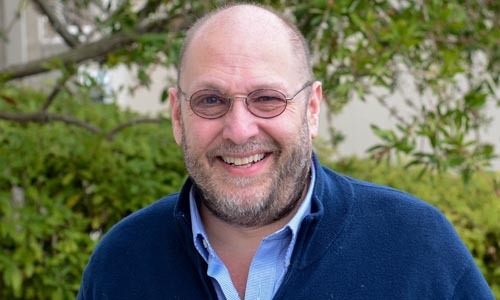
The Bio Report podcast, hosted by award-winning journalist Daniel Levine, focuses on the intersection of biotechnology with business, science, and policy.
The Bio Report podcast, hosted by award-winning journalist Daniel Levine, focuses on the intersection of biotechnology with business, science, and policy.
Episodes

Thursday Oct 01, 2020
An Experimental COVID-19 Vaccine Begins Human Clinical Trials
Thursday Oct 01, 2020
Thursday Oct 01, 2020
United Biomedical has long been in the business of producing animal vaccines, but in recent years it has turned its attention to developing vaccines for chronic human diseases including neurological diseases, diabetes, and other targets. More recently it has used its vaccine platform to develop a multitope peptide COVID-19 vaccine and spun it out into a division dubbed COVAXX. We spoke to COVAXX co-founder and CEO Mei Mei Hu and COVAXX co-founder and Chairman Peter Diamandis, about the company’s efforts to develop a COVID-19 vaccine, how its peptide-based vaccine works, and the case for this approach. Since recording this interview, COVAXX began dosing participants in its phase 1 trial September 28, 2020.

Thursday Sep 24, 2020
Speeding the Delivery of CAR-T Therapies While Cutting the Cost
Thursday Sep 24, 2020
Thursday Sep 24, 2020
CAR-T therapies are an area of great promise for improving outcomes for cancer patients, but the process of preparing cells taken from a patient and genetically modifying them is time consuming and costly. Exuma Biotech believes it can address the cost and time involved in the preparation of these products with its rapid, point-of-care platform technology. We spoke to Greg Frost, chairman and CEO Exuma Biotech, about CAR-T therapies, how its technology works, and how it is working to cut the cost, and speed the delivery of these immunotherapies to patients.

Thursday Sep 17, 2020
Transforming Infused Biologics into Injectables
Thursday Sep 17, 2020
Thursday Sep 17, 2020
The administration of biologics can be challenging because of the sheer volume of product needed to deliver a dose to a patient. It is for this reason that many of these therapies must be infused into a patient, a process that is disruptive, costly, and can take several hours. Halozyme’s Enhanze drug delivery technology has been used by a number of biologics producers to take a therapy that would otherwise need to be infused to allow it to be administered with a subcutaneous injection. We spoke to Renee Tannenbaum, vice president of global partnering for Halozyme , about the company’s Enhanze drug delivery technology, how it works, and the company’s reorganization to focus on partnerships around it.

Thursday Sep 10, 2020
A Novel Approach to NASH That May Have Benefits for COVID 19 As Well
Thursday Sep 10, 2020
Thursday Sep 10, 2020
NASH, a form of fatty liver disease, causes progressive damage and can lead to inflammation, fibrosis, and the development of cancer. It has become an increasing health concern as the Western diet has spread throughout the globe. Today it is estimated that as much as 5 percent of the world’s population has NASH with a greater percent of people with the condition in the United States. There is no simple blood test to diagnose NASH, which means it often progresses to a fibrotic stage before it is detected. There is also no approved therapy to treat it. We spoke to Robert Foster, CEO of Hepion, about the company’s experimental therapy for NASH, how it works, and why it may also have utility as a treatment for COVID-19.

Thursday Sep 03, 2020
Will a Focus on Protein Dysregulation Help Prothena Break from the Fold
Thursday Sep 03, 2020
Thursday Sep 03, 2020
The complexity of neurodegenerative diseases has made it a challenging area for drug developers. Gene Kinney, CEO of Prothena, has long been involved in the pursuit of therapies for diseases such as Alzheimer’s and believes there has been great progress in understanding and targeting these conditions. In fact, he says we are entering a golden age of neuroscience. We spoke to Kinney about the state of drug development for neurodegenerative conditions, Prothena’s pipeline, and its effort to target protein dysregulation in these diseases.

Thursday Aug 27, 2020
After FDA Set Back, AI Driven Drug Company Advances with New CEO
Thursday Aug 27, 2020
Thursday Aug 27, 2020
The U.S. Food and Drug Administration delivered a blow to Pharnext in 2019 when it told the company it should conduct an additional late-stage study of its experimental therapy for the rare neurological condition Charcot-Marie Tooth disease. A manufacturing problem that affected the dose delivered to some patients invalidated one the arms of its study. The company uses artificial intelligence and network pharmacology to identify molecules that may be involved in modulating a disease and searches for synergistic combinations of both existing and novel therapies to treat conditions. Since it’s clinical setback, the company named David Horn Solomon as its new CEO, sharpened its focus, and moved forward with an additional study. We spoke to Solomon about the company’s approach to therapeutic development, its focus on neurological conditions, and the case for using combination therapies as the best way to tackle the diseases it targets.

Thursday Aug 20, 2020
A Gamified Therapy System Helps People with Brain Injury Recover
Thursday Aug 20, 2020
Thursday Aug 20, 2020
MindMotion GO is a first-of-its-kind mobile neurorehabilitation therapy system that helps people regain motor and task functions through a gamified approach. While the game playing aspects of the technology may help engage patients in activities designed to help them recover from brain injury, the technology is validated by clinical studies and has won regulatory clearance. It should not be confused with conventional video games. We spoke to John Krakauer, chief medical advisor for MindMaze, about neurorehabilitation, how MindMotion Go works, and the benefits of being able to move neurorehabilitation out of the medical centers to treat patients in their homes, particularly during a pandemic.

Thursday Aug 13, 2020
Genentech Drug Offers Oral, at-Home Option for SMA Patients
Thursday Aug 13, 2020
Thursday Aug 13, 2020
People with the rare and fatal genetic disease spinal muscular atrophy in recent years have seen the approval of an antisense therapy as well as a gene therapy. Genentech has now won U.S. Food and Drug Administration approval for Evrysdi, the first oral, at-home treatment for the condition. We spoke to Levi Garraway, chief medical officer and head of global product development at Genentech, about Evrysdi, how it works, and how it fits into the choices physicians and patients have when it comes to treating spinal muscular atrophy.

Daniel Levine
Daniel Levine is an award-winning business journalist who has reported on the life sciences, economic development, and business policy issues throughout his career. He is founder and principal of Levine Media Group, host of The Bio Report and RARECast podcasts, a senior fellow at the Center for Medicine in the Public Interest, and author of Global Genes’ annual NEXT report on emerging trends in the world of rare disease. From 2011 to 2014, he served as the lead editor and writer of Burrill & Company’s acclaimed annual book on the biotech industry. His work has appeared in numerous national publications including The New York Times, The Industry Standard, and TheStreet.com.
